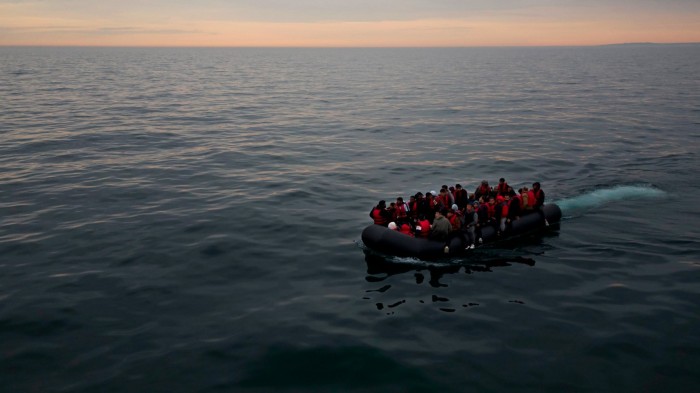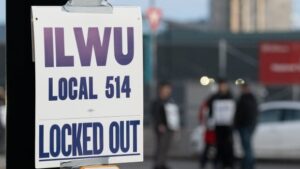
A new two-part BBC documentary assessing the past three decades of immigration policy in Britain is damning from its title card onwards. Immigration: How British Politics Failed charts a period from 1997 and the start of the New Labour era to this summer and the end of Tory rule. During that time, net migration has risen from 48,000 to a high of 745,000 (in 2022), racist hate crimes have rocketed and 400 people have died on Channel crossings.
Brought in to analyse what went wrong are former prime ministers Tony Blair and David Cameron, ex-party leaders Michael Howard and Jeremy Corbyn, and an array of erstwhile cabinet ministers, key advisers and critics. There is, broadly, cross-party consensus that there have been serious, systemic shortcomings in handling what recent polling suggests has become the dominant issue in British political and cultural discourse. But what precisely failed — and who has been failed — proves more divisive.
For the usual suspects — Reform UK leader Nigel Farage and Migration Watch’s Andrew Green — the numbers speak for themselves. An influx of economic migrants from newly acceded EU states during the Blair era brought net migration into the hundreds of thousands, while Cameron’s 2010 campaign pledge to bring the figure down to less than 100,000 never materialised.
Others identify failures to address the human factor behind the data. Matt Cavanagh, a former Labour adviser, concedes that the Blair government “missed” the growing working-class concern over increased migration in the mid-2000s. Meanwhile, Nazek Ramadan, director of the NGO Migrant Voice, presents an indictment of the Tories’ controversial hostile environment policy, which tried to put pressure on illegal migrants to leave by limiting access to employment, housing and healthcare and ultimately affected settled citizens.
The show presents a balanced catalogue of misjudged policies and misleading promises — as well as the press’s role in perpetuating alarmist, unfounded fears about migrants. But its focus is on how these problems played out in Westminster rather than in the UK as a whole. While it can be illuminating to hear first-hand insights on the thinking behind a decision (or indecision), the programme is weaker for sidelining the perspectives of those directly hit by the politics (Windrush campaigner Glenda Caesar is one notable exception). The absence of an onscreen interviewer to challenge the narratives proffered by contributors means that we receive only partial accountability.
As a result, little feels revelatory — Cameron tells us he was “desperately disappointed” by Brexit — or approaches meaningful solutions. But there is something to be said for a mostly measured and reflective discussion on an issue so often mired in inflammatory rhetoric.
★★★☆☆
On BBC2 from November 11 at 9pm and on iPlayer thereafter

